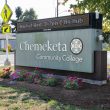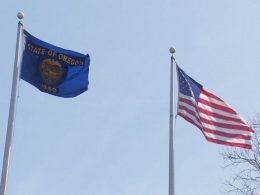Salem, OR – Oregon Secretary of State Tobias Read has expressed relief following a temporary injunction that blocks key components of President Donald Trump’s sweeping election executive order. A U.S. District Judge in Washington, D.C., issued the injunction on Thursday, halting the enforcement of the order’s provision requiring proof of citizenship for voter registration. The ruling comes amid widespread opposition from election officials and advocacy groups who argue that the order would undermine election security and disenfranchise voters, particularly in states like Oregon, which conducts its elections entirely by mail.
Trump’s executive order, signed in March, directed the U.S. Election Assistance Commission to update the national voter registration form to require prospective voters to prove their citizenship. Additionally, the order sought to withhold federal funding from states that accept ballots after Election Day, a provision that directly impacts Oregon’s voting system. The state accepts ballots mailed and postmarked by Election Day, even if they arrive after the election.
In response to the order, Oregon, along with Washington and a coalition of 19 other states, filed lawsuits to challenge the implementation of the executive actions. Read, who took office in January, joined a group of state elections officials in North Carolina on Thursday to meet with the Election Assistance Commission and express their concerns about the order.
“It’s a good thing the injunction was granted, but we must remain vigilant,” Read said in an interview with the Capital Chronicle from Charlotte, North Carolina. “We’re in an ongoing battle for election security, and we must be prepared for disruptions, whether they come from natural disasters or political interference.”
The injunction, issued by Judge Colleen Kollar-Kotelly, blocks the citizenship verification requirement while legal challenges are resolved. However, the judge declined to block the provision aimed at withholding federal funding from states that accept ballots after Election Day. While Read welcomed the legal victory on the proof-of-citizenship requirement, he remained concerned about the broader implications of the order on state election processes and resources.
Read, along with election officials from both political parties, emphasized during the meeting that Trump’s executive order would make it more difficult to conduct elections and could harm voter participation. “There was pretty dramatic unanimity in saying that this is an overreach into states’ rights to run their own elections,” Read stated. He also warned that the Trump administration’s threats to withhold federal resources unless states comply with the order could lead to more chaos in an already tense environment for election officials.
In Oregon, election officials faced significant security threats last year, including incendiary devices placed in ballot boxes and envelopes containing mysterious white powder. While Oregon’s ballots were largely spared due to fire-suppressing technology in the boxes, neighboring Washington saw hundreds of destroyed ballots. Read underscored that these incidents highlight the real-world dangers faced by election officials and the vulnerability of the election system to disruptions.
The controversy over the citizenship verification requirement stems from Oregon’s automatic voter registration system, which has been in place since 2016. Under this system, Oregonians who provide proof of citizenship when obtaining or renewing driver’s licenses or state identification cards are automatically registered to vote. However, Trump’s executive order would require voters to submit original documents, such as U.S. birth certificates or passports, to prove citizenship, effectively ending online voter registration.
Advocacy groups like Common Cause Oregon have warned that such a requirement would disenfranchise a significant portion of the population. According to estimates, around 1.8 million Oregonians do not have access to passports or original birth certificates. The order could also disproportionately impact certain groups, including seniors, military personnel stationed overseas, and women whose legal names differ from those on their birth certificates due to marriage.
“What we need to remember is that the impacts would not be felt equally across all populations,” Read remarked. “Seniors, military members, and women who’ve changed their names could face significant barriers to voting.”
As legal challenges to the executive order continue, election officials like Read are voicing their concerns about its broader impact on voter access and election security. With the temporary block in place, the future of Trump’s order now hangs in the balance as court proceedings move forward.











